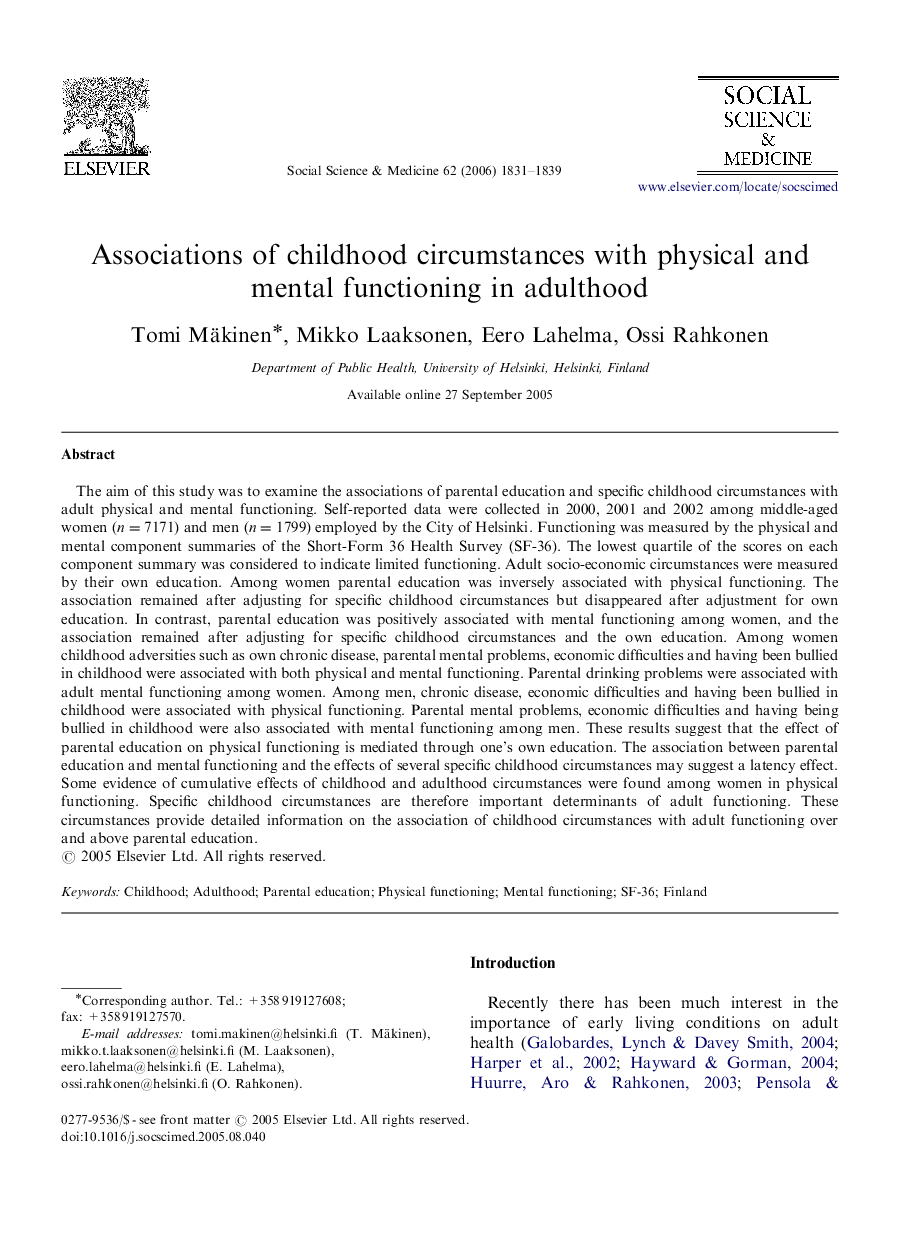| Article ID | Journal | Published Year | Pages | File Type |
|---|---|---|---|---|
| 954474 | Social Science & Medicine | 2006 | 9 Pages |
The aim of this study was to examine the associations of parental education and specific childhood circumstances with adult physical and mental functioning. Self-reported data were collected in 2000, 2001 and 2002 among middle-aged women (n=7171n=7171) and men (n=1799n=1799) employed by the City of Helsinki. Functioning was measured by the physical and mental component summaries of the Short-Form 36 Health Survey (SF-36). The lowest quartile of the scores on each component summary was considered to indicate limited functioning. Adult socio-economic circumstances were measured by their own education. Among women parental education was inversely associated with physical functioning. The association remained after adjusting for specific childhood circumstances but disappeared after adjustment for own education. In contrast, parental education was positively associated with mental functioning among women, and the association remained after adjusting for specific childhood circumstances and the own education. Among women childhood adversities such as own chronic disease, parental mental problems, economic difficulties and having been bullied in childhood were associated with both physical and mental functioning. Parental drinking problems were associated with adult mental functioning among women. Among men, chronic disease, economic difficulties and having been bullied in childhood were associated with physical functioning. Parental mental problems, economic difficulties and having being bullied in childhood were also associated with mental functioning among men. These results suggest that the effect of parental education on physical functioning is mediated through one's own education. The association between parental education and mental functioning and the effects of several specific childhood circumstances may suggest a latency effect. Some evidence of cumulative effects of childhood and adulthood circumstances were found among women in physical functioning. Specific childhood circumstances are therefore important determinants of adult functioning. These circumstances provide detailed information on the association of childhood circumstances with adult functioning over and above parental education.
